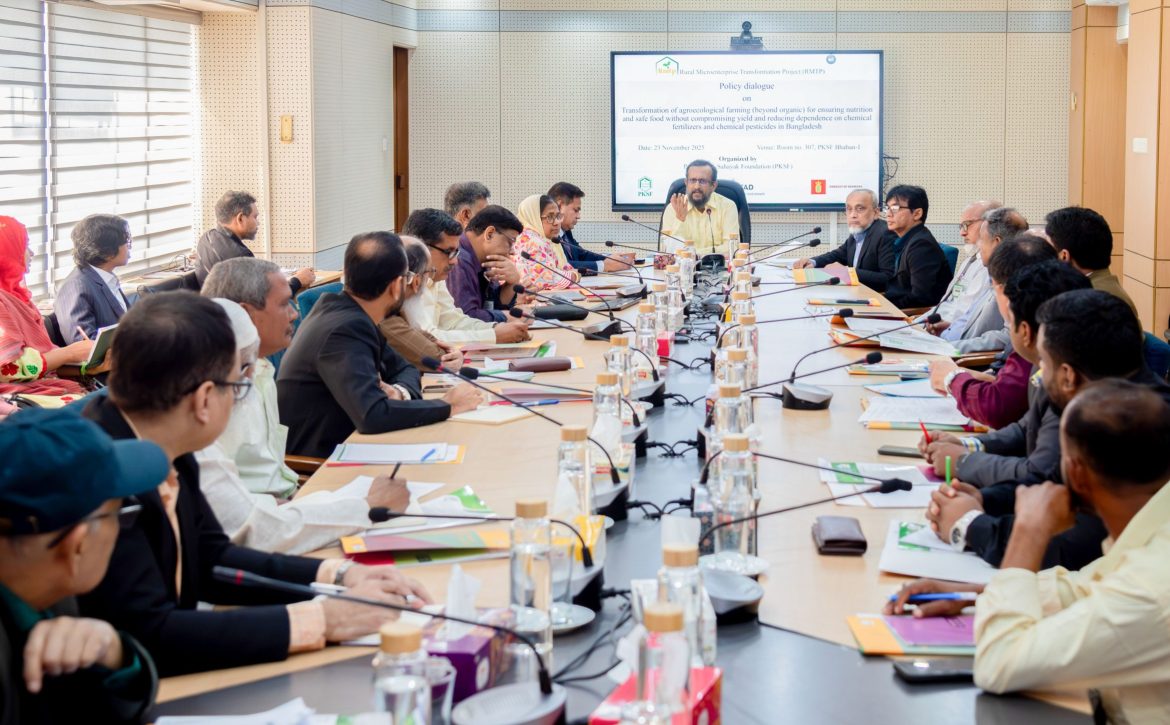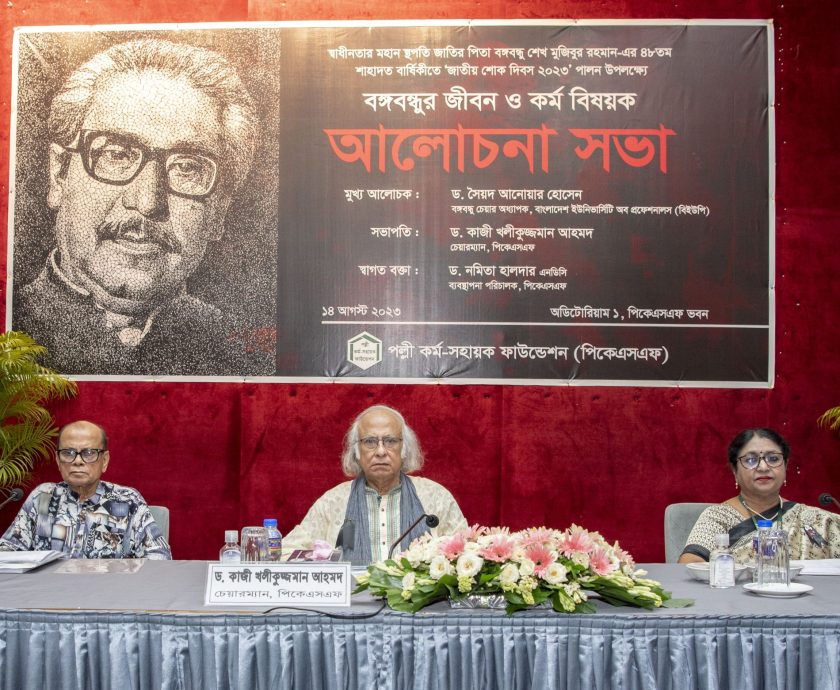Organic agriculture expansion is crucial for protecting agricultural ecosystem Speakers express their views at a policy dialogue organized by PKSF

Bangladesh’s food production system has long been excessively dependent on chemical fertilizers and pesticides. Indiscriminate use of these chemicals to boost crop yields has resulted in reduced soil fertility, environmental pollution, loss of biodiversity, and serious threats to human health. To address these challenges, Palli Karma-Sahayak Foundation (PKSF) organized a policy dialogue titled ‘Transforming of agroecological farming (beyond organic) for ensuring nutritious and safe food without compromising yield and reduction input subsidies and chemical fertilizers and pesticides in Bangladesh’ today in Agargaon, Dhaka.
PKSF’s Managing Director Md Fazlul Kader, the chair of the program, stated that farmers in Bangladesh tend to use excessive amounts of chemical fertilizers and pesticides. He emphasized on the need to address farmers’ social behavior to reduce the overuse of these chemicals. He pointed out that agroecological farming practices do not reduce production; in some cases, they can even enhance yields. However, he underscored the need to develop a clear roadmap for scaling up organic agriculture, adding that such a transition cannot occur overnight.
Speaking as the Chief Guest, SM Sohrab Uddin, Director General of the Department of Agricultural Extension, said that the farmers in the country turned to excessive use of chemical fertilizers to boost production. However, there is no alternative to agroecological farming for ensuring long-term sustainability in agriculture, he remarked.
Speaking as the Special Guest, Dr Begum Samia Sultana, Director General of the Soil Resource Development Institute, said that farmers supported by PKSF’s Partner Organizations can now easily have their soil tested at the Soil Resource Development Institute laboratories across the country and receive fertilizer recommendation cards.
Dr Shaikh Tanveer Hossain presented the keynote paper at the event. He stated that over the past 50 years, the excessive use of chemical fertilizers and pesticides has placed the soil and environment under serious threat. In the last fiscal year, the government provided a total subsidy of BDT 24,000 crore to the agriculture sector, 75 percent of which was spent on chemical fertilizers. In addition, the hidden environmental, social, and health-related costs of the country’s food production system amount to nearly 13 percent of the national GDP. To address this situation, he recommended revisiting the National Agriculture Policy, resolving policy inconsistencies, and developing an agroecology-friendly policy framework. He also emphasized on the need for increased investment in organic fertilizer production.
In the open discussion session, Shahid Uz Zaman, Executive Director of ESDO, said that without land reform, achieving the substantial changes needed for the sustainable expansion of agroecological farming is not possible. In addition, Mohsin Ali, Executive Director of WAVE Foundation, stated that strengthening the capacities of farmers and other stakeholders is vital for promoting indigenous biodiversity and scaling up agroecological farming. Mohammed Ali, a farmer from Chuadanga, shared that by adopting agroecological farming methods, his production has increased by nearly 50 percent while his costs have decreased by 25 percent. Alongside these insights, speakers highlighted the need for incentives for organic fertilizers, simplified registration processes for commercial organic fertilizers, waste-to-compost initiatives, and optimum use of modern technologies in agriculture.
The event was attended, among others by Professor Dr Md Golam Rabbani, Bangladesh Agricultural University; Dr Akond Mohammad Rafiqul Islam, Deputy Managing Director, PKSF; faculty members from various agricultural universities; researchers involved in agricultural extension; and representatives from private companies engaged in the agriculture sector.



